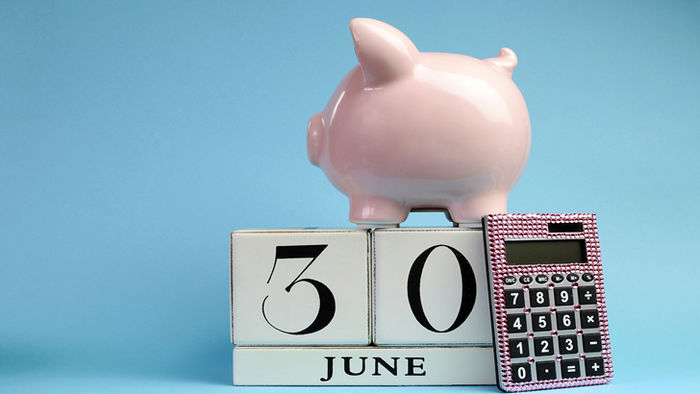Seven things you need to do before June 30
By Mark Chapman
With the end of the financial year approaching now is the time to start getting your financial affairs in order.
Here are seven things you should do before June 30 that can help you save or make money.
1. Can you defer some of your income until next tax year?
This can be difficult unless you have a very understanding employer but if, for instance, you're expecting a bonus, you might look to getting it paid after July 1 - therefore moving the tax liability into next year.
This is particularly useful if the bonus might take you over a tax threshold into one of the higher tax rates this year.
2. Get you paperwork in order!
The Australian Taxation Office (ATO) recently announced that it will be looking closely at work-related deductions across all industries and occupations so that means taxpayers needs to check their deductions carefully and make sure they have receipts, invoices etc. to justify their spend. In the past they've tended to focus on particular industries and occupations.
3. Consider pre-paying expenses before June 30
If you have professional subscriptions or other costs which you pay annually as part of your work, and cash flow permits, consider pre-paying. That way, you can claim the deduction this year even if the costs wholly or partly relate to the next tax year.
4. Remember you can claim certain household expenses if you work from home
You claim a proportion of household bills covering the work-related element of those costs.
Things you can claim for include:
- Heating, cooling and lighting
- Decline in value (depreciation) of home office furniture and fittings, office equipment and computers
- Computer consumables, stationery, telephone and internet costs claimed on an actual expense basis
You will need to keep a diary to work out how much of your running expenses relate to doing work in your home office.
The diary needs to detail the time you spend in the home office compared with other users of the home office. Keep diary records for a representative four-week period.
Alternatively, you can use a fixed rate of 45 cents per hour for home office expenses for heating, cooling, lighting and the decline in value of furniture instead of keeping details of actual costs.
You just need to keep a record of the number of hours you use the home office and multiply that by 45 cents per hour. Under this method you can also include the decline in value of office equipment (i.e. computers, faxes, etc.) but not furniture.
The following costs are not deductible as part of home office expenses:
- Mortgage or interest costs
- Rates and taxes
- Depreciation on the home
5. Let the government contribute to your super
If your income is less than $49,488 you can take advantage of the government superannuation co-contribution by making after tax (non-concessional) contributions before the year end.
The government will contribute up to 50 cents for every dollar contribution that you make up to a maximum contribution of $500.
To get the maximum government co-contribution, you must be earning less than $34,488.
If you earn between $34,488 and $49,488, the contribution tapers by 3.33 cents for every dollar over the lower threshold until it disappears altogether after $49,488.
6. Draw down your pension
It is a requirement of all superannuation pensions that at least one payment is made each year.
To calculate the minimum payment, the account balance at July 1 each year is multiplied by the relevant age based percentage factor.
7. Small business tax break
If you have a small business, take advantage of the new $20k asset write off before 30 June.
That way, you accelerate the tax relief and you get relief at the current small business tax rates (30% for companies) rather than the lower rate that comes in on July 1 (28% for companies, or a 5% discount for sole traders).
As well as being paid for, the assets you buy actually have to be in use or ready for use by June 30, so if you pay for something now but there's a delivery delay and you won't actually receive it until after July 1, you can't claim the deduction this tax year.
Get stories like this in our newsletters.



